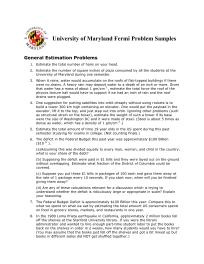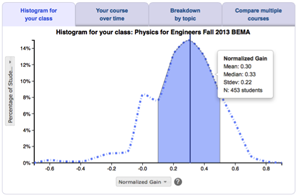
Developed by: E. F. Redish and the University of Maryland Physics Education Research Group





middle schoolhigh schoolintro collegeinter-mediateupper levelgrad school other

calc based

alg based

conceptual











Overview
What? A collection of homework problems, clicker questions, and exam questions. Includes estimation problems, ranking tasks, and problems designed to help students connect mathematical and conceptual reasoning and relate physics to the real world.
Why? Thinking Problems were curated to promote evidence based techniques for adopting supplementary problem sets. Instructors can choose from cooperative learning problems to longer, project-like problems introducing complex, real-world situations. Resources are available at no cost.
Why not? Thinking Problems are no longer actively supported by the authors and answer keys are not available online. The problem sets have not been recently updated.
Student skills developed
- Conceptual understanding
- Problem-solving skills
- Making real-world connections
- Metacognition
Instructor effort required
- Low
Resources
Teaching Materials
You can download thinking problems from the University of Maryland's Thinking Problems page.
Research
This is the lowest level of research validation, corresponding to at least one of the validation categories below.
Research Validation Summary
Based on Research Into:
- theories of how students learn
- student ideas about specific topics
Demonstrated to Improve:
- conceptual understanding
- problem-solving skills
- lab skills
- beliefs and attitudes
- attendance
- retention of students
- success of underrepresented groups
- performance in subsequent classes
Studied using:
- cycle of research and redevelopment
- student interviews
- classroom observations
- analysis of written work
- research at multiple institutions
- research by multiple groups
- peer-reviewed publication





